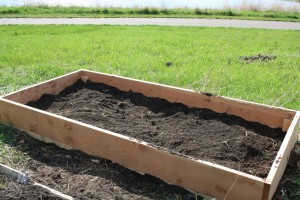Tips for Making Better Compost
Probably the most common advice given for improving your garden’s performance is to add compost. Compost improves soil fertility and texture. It’s packed with microorganisms that plants love and is the happy home to worms and other beneficial creatures. And, if you make it yourself, it’s free.
But, many gardeners are stumped about how to produce compost well.

Here are some tips for better compost, based on University of Minnesota recommendations:
- The optimum size for a compost pile is 4 feet by 4 feet by 4 feet. At those dimensions, the compost will heat up quicker and decompose faster. That said, compost happens, almost no matter what you do. If your pile is smaller, it will take longer for the leaves, grass clippings and vegetable waste in the pile to decompose (think years, not months), but it will decompose eventually.
- Compost starter is not necessary. Most compost starters provide microbes and nitrogen to get the material you are composting going. While microorganisms and nitrogen are needed for compost to get started, you can add a couple of shovels of garden soil and maybe a handful of fertilizer to get the same benefits at a much lower cost.
- Compost piles like shade. While you can make compost anywhere, shady locations protect the pile from drying winds and sunlight, which also dries the compost out and slows the process. Another factor to consider in placing compost bins are the bins’ impact on neighbors—compost that stinks (it shouldn’t) or obstructs a neighbor’s view probably isn’t going to make you the most popular person on the block. Consideration is always a virtue.
- Add air. Most gardeners know that to make compost you need brown materials (dried leaves, etc.), green materials (plant debris, grass, vegetable peelings) and moisture. But you also need air. You can add air by turning your pile or by adding bulkier items. If you want to add air with bulky materials, wood chips are a great option, because the spaces around the chips hold air in the pile. The only disadvantage of wood chips is that you will need to sift your compost through a screen to get them out.
- Is it done yet? When your compost pile is finished, it should be about half the original volume of the pile and have an earthy smell. A well-managed compost pile will be ready in four to nine months. A poorly managed pile will take one to three years.
- Gardens need compost! While not exactly news, it’s important to recognize how many ways compost benefits gardens. To improve fertility and tilth, add 1 to 2 inches to the top of the soil and work it in 6 to 8 inches, if possible. Compost also makes a great mulch — you need 2 to 4 inches to suppress weeds — and it’s a wonderful amendment to potting soil for containers. Make compost 30 percent of the volume of soil in your containers for healthy plantings.

One Comment
-
Pingback: April Garden Chores: A Careful Dance - Minnesota State Horticultural Society
Back to Blog